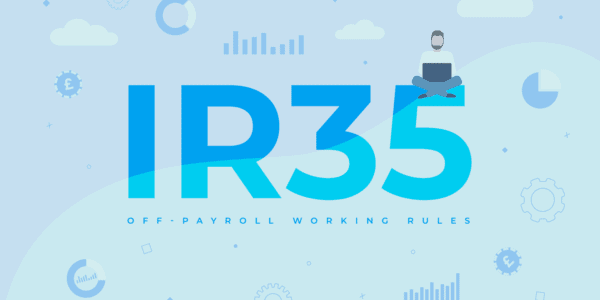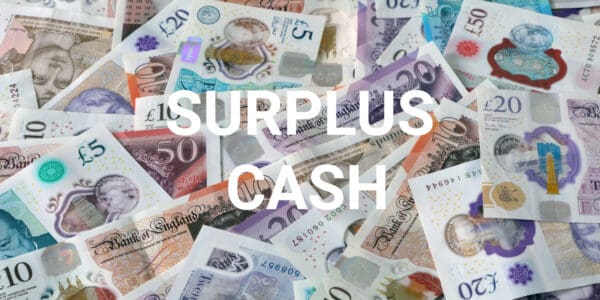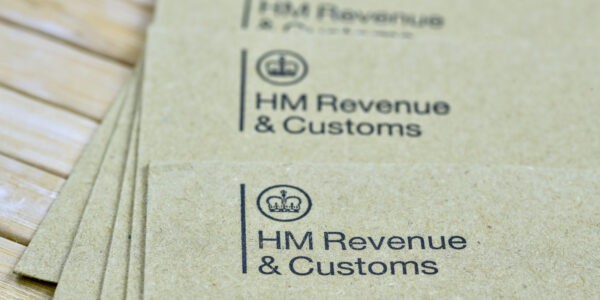A common misconception is that the money generated by a company belongs to the people who own it. If you hold this belief, you risk taking too much money out of your limited company, which can cause serious accounting and tax issues. Below, we’ll discuss how to legally take money out of your UK limited company – and what to do if you remove too much.
Your limited company is legally and financially independent
A limited company is incorporated as an independent legal entity, which means that it is legally and financially separate from its directors and owners (shareholders). Therefore, certain protocols must be followed whenever taking money out of a limited company.
Legally, you are not your company, so you cannot simply withdraw or transfer cash from the company’s bank account for personal use whenever you want. The income generated by your company does not belong to you unless it is removed as:
- a director’s salary
- expenses and benefits
- dividends
- a director’s loan
The biggest benefit of this separation is that you are not held personally liable for any debts of the company – those debts belong to the company. You are only responsible for paying the nominal value of your shares or personal guarantee.
This is very different from the sole trader setup. Essentially, the person is the business, so there is no legal distinction between the two. All money that comes into the business (and all debts accrued) belongs to the individual.
If you pay yourself an excessive director’s salary
If you are the sole director and shareholder of a company, it’s really up to you how much you pay yourself as a director’s salary. Whilst it is more tax-efficient to take a lower salary topped up with dividends, you can take whatever salary you like – provided the company has enough money in its bank account.
However, if your company has other directors and shareholders, paying yourself an excessive director’s salary may breach your legal duties to the company and shareholders by putting your own interests first. In such instances, the other directors and shareholders (and even the courts) could challenge your remuneration and order you to repay a certain amount to the company.
If you take too much in dividends
Dividends must only be declared and paid when a company has sufficient distributable profits to support them, otherwise, they are deemed illegal.
This means that your company must have enough remaining profit after you’ve accounted for all Corporation Tax and VAT liabilities, salaries and wages, loan repayments, bills, and any other expenses that are due to be paid in the current financial year.
If you mistakenly issue dividends that exceed the value of your company’s available profits, you can rectify the problem by simply repaying the money into the company’s bank account and recording the transaction in your financial accounts.
If you have spent the dividend money, you will have to cover the overpayment from future sales until the company is back in a profit position. Until this happens, you cannot issue any more dividends.
Issuing an illegal dividend is a serious matter, but it is not a criminal offence if the payment was an oversight and the issue is remedied. However, you could face serious consequences if the company is insolvent and/or you were fully aware that the company could not support the payment of dividends.
In such instances, you can be disqualified as a director and held personally liable for the overpayment and any company debts that went unpaid due to the issuing of illegal dividends.
HMRC’s Company Taxation Manual provides detailed guidance on declaring dividends and how to rectify the payment of illegal dividends.
If you withdraw too much money from your company
If you intentionally or accidentally withdraw any money from your limited company for personal use (other than a director’s salary, expenses and benefits, or dividends), it is classed as a director’s loan and must be recorded in a director’s loan account.
The account will be ‘overdrawn’ if you’ve taken more money from the company than you have paid in. Conversely, the account will be ‘in credit’ if you’ve paid more money into the company than you’ve taken out.
Depending on the amount of money borrowed from the company, you may not have to pay any personal tax if the loan is repaid within 9 months and one day of the company’s accounting reference date (ARD). However, the company will have to pay Corporation Tax and interest on the outstanding loan amount until it is repaid. The Corporation Tax can be reclaimed, but the interest cannot.
All transactions in your director’s loan account must be included in the company’s balance sheet. In some instances, you will also need to report the loan in the Company Tax Return and your Self Assessment tax return.
Please note that the information provided in this article is for general informational purposes only and does not constitute legal, tax, or professional advice. While our aim is that the content is accurate and up to date, it should not be relied upon as a substitute for tailored advice from qualified professionals. We strongly recommend that you seek independent legal and tax advice specific to your circumstances before acting on any information contained in this article. We accept no responsibility or liability for any loss or damage that may result from your reliance on the information provided in this article. Use of the information contained in this article is entirely at your own risk.










Join The Discussion
Comments (2)
This is very interesting! I would love to see a video about this too.
That’s a great idea, thanks!
We’re always adding new videos so we’ll be sure to add this to our list.
Regards,
The QCF Team